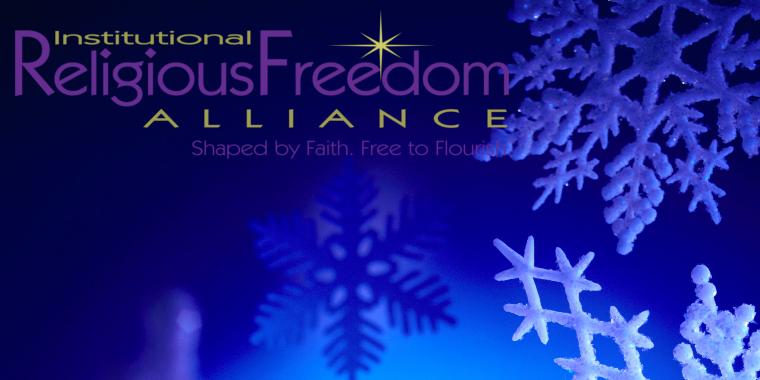
Celebrate Religious Freedom for All When Celebrating Your Own Faith This Season – Blessings to You for Your Faithful Service
Chelsea Langston and Sarah Neiman (IRFA intern)
In this season full of holidays celebrating major religious milestones for different world religions, it is appropriate to reflect on how our freedom of religion relates to the practice of religion. Religious freedom is not something apart from the exercise of religion, serving only as a catalyst or on-switch so we can exercise our faith precepts. Rather, seeking religious freedom is, for many faiths, a practice of religion itself.
Religious celebrations embody a distinct religion’s deeply held and long-standing convictions. These holidays, ‘holy’ days, commemorate the various faiths’ unique historical narratives. This time of year is a season for the celebration of religious holidays for several major faiths. Notably, followers of Hinduism have recently celebrated Diwali, followers of Islam celebrated Eid at the end of Ramadan, Jews celebrated Hanukkah Dec. 6-14, and followers of Christianity are looking forward to celebrating Christmas this week.
Hanukkah is a good example of why religious freedom is an essential component of the practice and celebration of faith, as Rabbi Jonathan Sacks has written.
A religious faith, to its adherents, is a deeply meaningful and conscious decision by a person to follow the tenets and celebrations of a religion and it should not be hindered or oppressed by any other religion or by any political actor. Each person has an important and personal connection to their own religion, and that vital connection should remind each of us of how important another person’s conviction is to them, no matter how different or opposed their belief might be.
In response to increasingly negative statements about Muslims, Russell Moore, president of the Ethics & Religious Liberty Commission of the Southern Baptist Convention, said this: “I could not disagree more strongly with Islam…[However] it is not in spite of our Gospel conviction, but precisely because of it, that we should stand for religious liberty for everyone.”
Religious freedom does not mean religious freedom only for Christians or only for any other single religious group. Rather it is an understanding that every person of faith should respect the right of other people and other organizations to practice and celebrate their own beliefs and history, just as they have enjoyed such freedom themselves.
This holiday season, as you take time to celebrate and reflect on your personal religious holiday, remember that it is this very freedom that you benefit from that you should promote for all, even as adherents of other religions are asked to respect you and your celebrations.
